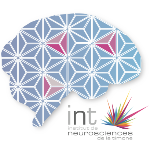|
|
|
SpeakersThe following speakers will be giving talks in the workshop Jay Giedd, University of California in San Diego, USA Jay N. Giedd, M.D. is a Professor in the Department of Psychiatry at UCSD, and Director of Child and Adolescent Psychiatry at the Rady Children’s Hospital in San Diego. In addition, he is an adjunct Professor at Johns Hopkins School of Public Health in the Department of Family and Reproductive Medicine. Dr. Giedd has combined brain imaging, genetics, and behavioral analysis to explore the path and influences of brain development in health and illness. As one of the most highly cited neuroscientists of his generation, his over 200 scientific publications have had a transformative impact on medicine, psychology, education, judicial, and public policy. Dr. Giedd’s recent work has focused on how new insights from pediatric neuroscience can be used to optimize the environment for healthy brain development, particularly regarding education and the use of digital technologies that have transformed the way youth learn, play, and interact with each other. Guillaume Auzias, Institut de Neurosciences de La Timone, France. I completed my PhD in image processing at the University of Paris-Sud in 2009. My research lies at the interface between applied mathematics and neuroscience. Jessica Dubois, Cognitive Neuroimaging Unit, INSERM, France Jessica Dubois is a researcher at INSERM, in the Cognitive Neuroimaging Unit (U992) located in NeuroSpin (CEA, Saclay, France). She obtained an engineering degree in 2001, a master degree (“Interface between Physics and Biology”) in 2002, and a PhD from the University Paris 11 in 2006. Her researches are focused on the early stages of human brain networks and on developmental mechanisms mapped in infants with MRI, in relation with functional development for visual and language processing. In 2012, she received the Junior Prize Christian Nézelof of Pediatric Pathology for her post-doctoral researches performed in Geneva University Hospitals, on the cortical folding in preterm newborns.
Julien Lefèvre, Institut de Neurosciences de La Timone, France I received a MSc degree in applied mathematics from Ecole Normale Supérieure, Cachan, in 2004, and a PhD degree in signal and image processing from the University of Paris-Sud in 2007. I am an assistant professor in the MeCA Team, INT/LSIS, Aix-Marseille Université. I am interested in developping new tools coming from geometry, harmonic analysis or PDE to analyze and model the cortical folding pattern. I am currently leading a research project on the normal and abnormal development of Gyrification, in particular during the prenatal period. Roberto Toro, Institut Pasteur, France. I am interested on the development and evolution of the brain, which I study through mathematical modelling, magnetic resonance imaging and genetics. I have developed computational models to describe the global organisation of the sulcal anatomy of the human brain, and to simulate the gyrification of the cerebral cortex. My aim is to apply this theoretical framework to the analysis of human neuranatomical diversity. Tuomas Tallinen, University of Jyväskylä, Finland. Tuomas Tallinen completed his PhD in 2009 on computational physics at University of Jyväskylä, followed by a postdoc at Harvard University, where he focused to study the mechanics of morphogenesis. In particular, he has utilized quantitative models and computer simulations to describe large deformations and mechanical pattern formation in soft growing matter such as the developing brain. He works currently at Varian Medical Systems in Helsinki. Lisa Ronan, University of Cambridge, UK. I originally studied physics at Trinity College Dublin before moving in to Neuroscience for my PhD where I considered optimum methods to quantify cortical morphometry. I am currently a research associate at the Brain Mapping Unit at the University of Cambridge where I have continued my work on morphology, specifically the intrinsic geometry of the cerebral cortex. I am particularly interested in understanding the physical mechanism of gyrification within the context of its underlying biology. Victor Borrell, Universidad Miguel Hernández, Alicante, Spain. Científico Titular CSIC at the Developmental Neurobiology Unit of the Instituto de Neurociencias, joint center between CSIC and Universidad Miguel Hernández. Background in Biology (BSc Biology, Universitat de Barcelona) and Developmental Neuroscience (PhD in Biology, Universitat de Barcelona). Group leader of the Neurogenesis and Cortical Expansion Laboratory at the Instituto de Neurociencias. Member of the executive committees of the Spanish Society for Developmental Biology (2014) and the Spanish Society for Neuroscience (2015). His main research areas are evolution of brain development and cerebral cortex folding. He works on understanding the cellular and molecular mechanisms that govern the expansion and folding of the cerebral cortex in higher mammals, and those that were responsible for its evolution along vertebrate phylogeny. His evo-devo approaches encompass transcriptomics, proteomics, live cell imaging and in vivo genetic manipulation of embryonic brain development in non-genetic species. |


